- H-107, First Floor, Sec -63, Noida, U.P. - 201301
- EveryDay : 10:00 am - 7:00 pm
Sar Pass Trek
Sar Pass trek
Duration: 5N/6D
Type: Group Trip
Pickup & Drop : Kasol - kasol
About the Tour
At an altitude of 13,850ft Sar Pass Trek has one of the most beautiful trekking trails consisting of cascading waterfalls, lush green valleys and the pristine Parvati river. It is also one of the most popular treks in the months of May and June, and you can easily do it while you’re in Kasol or Parvati valley. If you are planning to visit Kasol anytime soon then you might want to take a look at Sar Pass Trek as well. It’s a paradise for nature lovers and adventure enthusiasts alike. The Sar Pass Trek starts from the quaint Grahan village, which is a tiny hamlet a few kilometers away from Kasol, and surrounded by beautiful Rhododendrons trees. Many people who visit Kasol are unaware of this peaceful village and it remains a hidden gem of Himachal where peace still exists. The best part about this trek is that you get to explore the nearby areas and get a glimpse at the diverse and rich Himachali culture. The people here lead slow paced lives and it’s only when you are in close proximity to them do you actually understand just how much simple pleasures can make you feet content. The Sar Pass trek offers many picturesque landscapes for you to marvel at. When you are traversing and on your way to the Biskeri Ridge, you will come across a small frozen lake given the name Sar which gives you the impression of being in a fairyland with its 100ft tall snow laden slopes that surround it. The trekking trail of Ming Thach is lined with dense forest and after traversing through it, you will get to witness the Great Himalayan ranges beckoning you closer.
Costing
| Room Sharing | Pricing |
| Triple Sharing | Rs. 8,499/- PP |
Things To Pack
![]() Rucksack:
Rucksack:
You must pick a good quality backpack with a comfortable fit and straps that won’t give you shoulder pain. You can check out your nearest Decathlon store for a good trekking backpack.
Day Bag / Day Pack:
When you head towards the summit, you are required to carry only a few necessary items and for that, you need a day backpack as you will leave your bigger one on the campsite.
Hiking Shoes :
Durable footwear designed for rugged terrains.
Floaters or Sandals:
Although the entire trek requires a good quality shoe, you still need to let your feet breathe to avoid chafing and blisters. When you are at the camp, a good pair of sandals and floaters will help you to move freely.
Tees / Tshirts:
You must keep at least three pairs of quick dry tees so that you can wash them in between stops for proper hygiene.
Poncho:
A poncho is an evolved form of a raincoat that provides coverage to your body as well as your bag and ensures total water protection from rain.
Quick Dry Towel:
A quick dry towel will help in maintaining proper hygiene. It must dry quickly because the wet fabric will only increase the chance of bacterial growth.
Sanitizer:
Essential for maintaining cleanliness while trekking.
Sun Cap / Hat:
A lightweight sun cap with side flaps is perfect to keep your head cool and avoid sunburns on a sunny day.
Sunscreen SPF 40+:
To avoid sunburns and chafing, you need to put on sunscreen as well as cold cream.
Water Bottle (Re-usable):
Hydration is extremely important when it comes to trekking. Carrying a water bottle that you can refill with Himalayan water is a must.
Personal Toiletries:
A bag with all your essentials including napkins, toothpaste, sanitizers, paper soap, etc should be carried in a ziplock bag.
Personal Medication / First Aid:
A few cuts and bruises are almost inevitable when you are on a trek so carrying a medical kit with bandages, Dettol, etc is necessary.
Sun Glasses / Reading Glasses:
Photochromatic glasses are specs that are designed to transform into anti-glare shades depending upon exposure to the sun. They are good when it comes to eye protection but one can also opt for clip-on glasses etc.
Charger:
To keep your electronic devices powered during the trip.
Power Bank:
Ensures your devices stay charged when there are no outlets.
Personal Documents & ID’s:
Identification proofs like Aadhar Card, Drivers License.
Laundry Bag (Waterproof):
In case your clothes get wet or your garments don’t dry, you can carry them in polythene. However, make sure that all the plastic that you are carrying into the woods leaves with you. Don’t litter in the mountains.
Track Pants:
A good pair of track pants made of polyester will let your skin breathe. They’re lightweight, dry easily, and comfortable to walk around in. You can easily avoid chafing and rashes by investing in a good pair of track pants.
Trekking Shoes:
A good trekking shoe is comfortable, provides ankle support, and has a good grip as well. They shouldn’t be chunky, instead, they should be lightweight and sturdy.
Cotton Socks:
Cotton socks are extremely comfortable to move around in and are lightweight as well which is why you can always count on a good pair of cotton socks while trekking. However, keep in mind to change them and avoid wearing them when they are wet.
Woolen Socks:
A good pair of woolen socks, especially merino, are comfortable, limit odors and provide adequate insulation from the cold so you can wear them at night.
Woolen Gloves:
Insulated gloves help in maintaining proper body heat in your hands and also provide a better grasp on trekking poles.
Main Jacket:
It’s emphasized that you need to carry proper layers so you can avoid getting cold which is why you need to carry a heavy jacket that you can put on over your other clothes.
Woolen Cap:
A woolen cap will help prevent cold when you ascend to high altitude. You can also cover your ears to avoid any pain and discomfort you might face in them when going at high altitudes.
Hoodie:
A versatile layering option for various temperatures.
Scarf / Balaclava:
Along with sun rays and chilly winds, you also get hit by dirt and grime during treks which is why it’s important to carry a scarf or balaclava so you can cover your face when needed.
Head Lamp:
You can’t rely on moonlight when you are in the mountains. A torch or even a headlamp with a fresh pair of batteries is always a good idea to bring along.
Trekking Pole:
The trekking pole assists in more than one way. It saves energy while also providing stability and helps you to maintain proper balance.
Camera:
This should be obvious. To make sure that you get to capture all the great moments from your trek. Make sure that you have enough storage and some extra batteries as well.
Riding Gear:
If your trip involves biking or motorcycling.
Moisturiser & Cold Cream:
To avoid sunburns and chafing, you need to put on sunscreen as well as cold cream.
Lip Balm:
Your lips can become chapped due to the harsh cold winds so it’s important to keep them moisturized.
Sanitary Pads:
Essential for feminine hygiene.
Insect Repellent:
Guards against pesky bugs and insects.
Cash:
Emergency funds for unexpected situations.
Thermals:
Thermal is a piece of garment that helps in keeping your body warm in cold temperatures. It is a necessary item that you need when going on a high-altitude trek.
Snacks / Dryfruits / Energy Bar:
Provides quick energy on the go.
Positive Attitude:
The most important item for a successful trek or trip, keeping your spirits high and adaptable to the challenges of the journey.
Join us for a journey that blends adventure, culture, and tranquility, crafted with care and passion for discovery. Safar suhana exclusive expedition invites you to experience the world’s timeless wonders in a way that’s both unique and unforgettable.
Tour Plan
Day 1: Kasol Arrival | Group Introduction
- The group will assemble in Kasol which serves as the base camp for the Sar Pass Trek. We’ll check into our campsite at 12:00 PM (tentative).
- The rest of the day is at leisure but travelers are advised to go cafe hopping in Kasol and indulge in some local sightseeing.
- In the evening, we’ll have dinner followed by an overnight stay in Kasol.
Day 2: Trek to Grahan Village (7 Kms, 4 Hrs Trek)
- After early morning breakfast, we’ll head towards Grahan village which is one of our campsites for the trek.
- Grahan is a tiny hamlet nestled in Himachal, away from the hustle and bustle of cities. On your way to Grahan you will get to traverse through green meadows and listen to the song of birds. The ever ceaselessly flowing stream of the Parvati river will wash away all your burdens.
- Finally, dinner will be served in the evening followed by an overnight stay.
Day 3: Grahan to Min Thach (9 Kms, 6 Hrs Trek)
- After early morning breakfast, we will head towards Min Thach.
- You will be traversing through Eden-like forests with Kanwar wildlife sanctuary in the backdrop. You will hear the calls of many animals and birds.
- We will check into our campsite. You are happy to explore the premises where you might see cattle grazing peacefully in the fields. If you stroll a bit further, you will get a sneak peek of Nagaru and Sar Top.
- Indulging in some stargazing at Min Thach followed by dinner and overnight stay.
Day 4: Min Thach to Nagaru (6 Kms, 4 Hrs Trek)
- After breakfast, we will head towards Nagaru. Elevated at a staggering height of 12,500ft, it is the highest as well as the coldest campsite of this trek.
- The trek is short but ends with a rewarding sight of the beautiful landscape of Beas river, Parvati valley, Chanderkhani as well as Grahan village.
- We will set our camp at the Nagaru base. The rest of the day is at leisure. You can enjoy some moments of peace and scenic views of the entire valley.
- Dinner will be served in the evening followed by an overnight stay in Nagaru.
Day 5: Nagaru to Biskeri Thach via Sar Pass (14 Kms, 10 Hrs Trek)
- We will wake up a bit earlier to see the sun rising from behind the mountains, which would be a breathtaking sight to behold.
- After that, we’ll have breakfast and will head out for Biskeri Thach.
- En route, we will be crossing Sar Pass which is a frozen lake that connects Parvati valley to Sainj Valley.
- We will probably reach the Biskeri Thach campsite right in time to enjoy the beautiful sunset.
- Dinner will be served in the evening followed by an overnight stay in Biskeri Thach.
Day 6: Biskeri Thach to Barshaini (10 Kms, 4 Hrs Trek) | Drive to Kasol (17 Kms, 1 Hr Drive) | End of Tour
- After breakfast, we will trek down to Barshaini to embark on our return journey. En route, we will see the Parvati river bidding us adieu.
- Upon reaching Barshaini, we’ll depart for Kasol where we will part our ways with fond memories.
- End of Tour.
What’s in the Package?
Inclusion
![]() Accommodation: 5 Nights of Tented Accommodation on a double / triple sharing basis as per booking.
Accommodation: 5 Nights of Tented Accommodation on a double / triple sharing basis as per booking.
![]() Transportation: Surface transfer from Barshaini – Kasol by Sumo / Bolero.
Transportation: Surface transfer from Barshaini – Kasol by Sumo / Bolero.
![]() Meals: All Veg meals from Day 1st Dinner to Day 6th Lunch.
Meals: All Veg meals from Day 1st Dinner to Day 6th Lunch.
![]() Snacks: Morning / Evening Tea / Coffee with light snacks and soup while on the trek.
Snacks: Morning / Evening Tea / Coffee with light snacks and soup while on the trek.
![]() Camping logistics: Tent, Sleeping bags, Mattresses, Dining tent, Toilet tent.
Camping logistics: Tent, Sleeping bags, Mattresses, Dining tent, Toilet tent.
![]() Trek Leader: Qualified and Experienced Trek leader and support staff.
Trek Leader: Qualified and Experienced Trek leader and support staff.
![]() Permits: All necessary fees and permits.
Permits: All necessary fees and permits.
![]() Trekking Equipment: Gaiters, Micro Spikes, and Rope if required.
Trekking Equipment: Gaiters, Micro Spikes, and Rope if required.
![]() Safety Equipment: Basic First Aid kit with Oximeter & Oxygen Cylinder.
Safety Equipment: Basic First Aid kit with Oximeter & Oxygen Cylinder.
![]() Guide ratio: 1:10
Guide ratio: 1:10
![]() Others : Cloak Room facility available at base camp for extra luggage.
Others : Cloak Room facility available at base camp for extra luggage.
Exclusion
![]() GST (5%): The Goods and Services Tax (GST) of 5% is an additional charge and will be applied on top of the total cost.
GST (5%): The Goods and Services Tax (GST) of 5% is an additional charge and will be applied on top of the total cost.
![]() Food & Beverages Not Included: Any food or drinks outside the package (e.g., alcoholic beverages, mineral water, meals on the highway) are the customer’s responsibility.
Food & Beverages Not Included: Any food or drinks outside the package (e.g., alcoholic beverages, mineral water, meals on the highway) are the customer’s responsibility.
![]() Personal Expenses: Customers should cover their own personal expenses, including tips for drivers, entrance fees to monuments/monasteries, and any additional activities (like river rafting or laundry).
Personal Expenses: Customers should cover their own personal expenses, including tips for drivers, entrance fees to monuments/monasteries, and any additional activities (like river rafting or laundry).
![]() Unexpected Costs Due to Natural Events: If any natural disasters (e.g., landslides, roadblocks) occur, any extra costs incurred would need to be paid directly by the customer.
Unexpected Costs Due to Natural Events: If any natural disasters (e.g., landslides, roadblocks) occur, any extra costs incurred would need to be paid directly by the customer.
![]() Anything Not Listed in Inclusions: If something is not explicitly mentioned as being part of the package, it won’t be covered.
Anything Not Listed in Inclusions: If something is not explicitly mentioned as being part of the package, it won’t be covered.
![]() Portors to carry your personal baggages.
Portors to carry your personal baggages.
![]() Raincoat, Poncho, Trekking stick.
Raincoat, Poncho, Trekking stick.
![]() Jackets, Warm Clothes
Jackets, Warm Clothes
Note – Bag offloading cost is Rs 4800 (maximum weight should not be more than 10 kg)
Tour Location
Tour Location
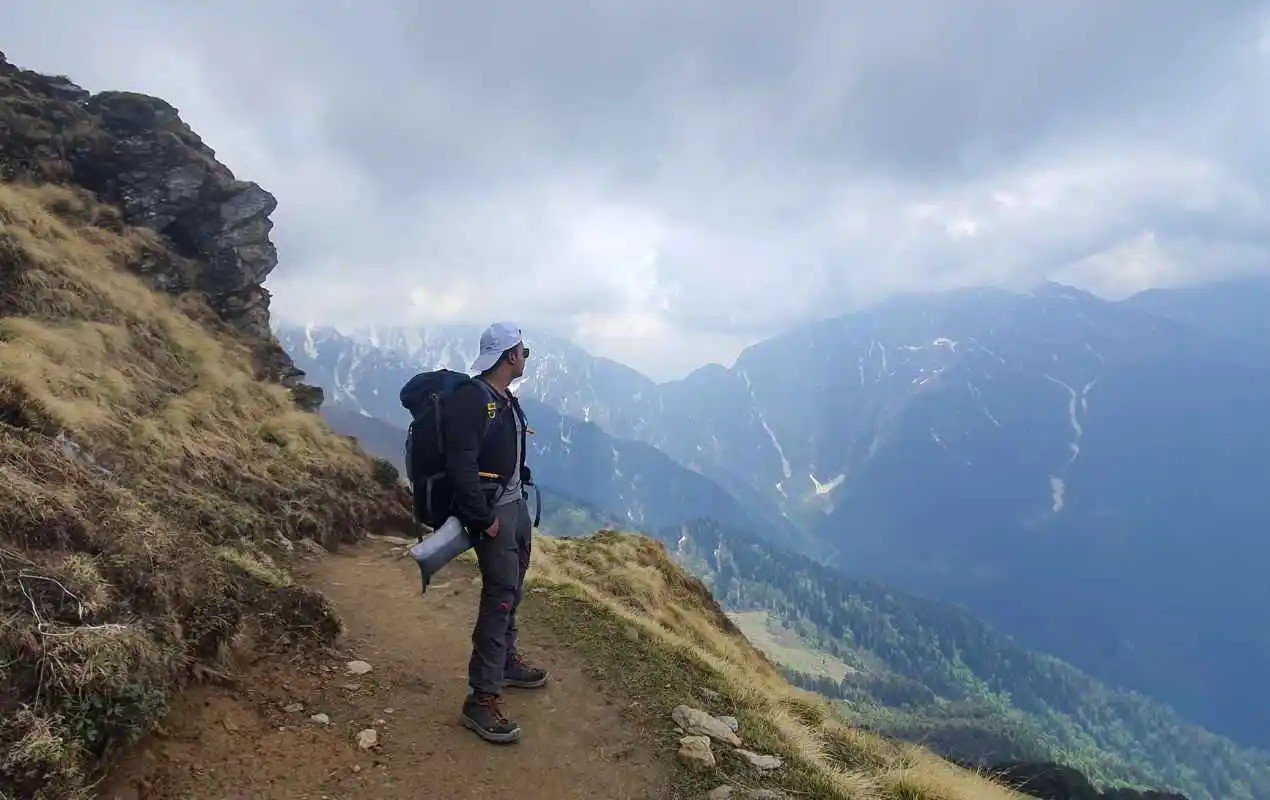
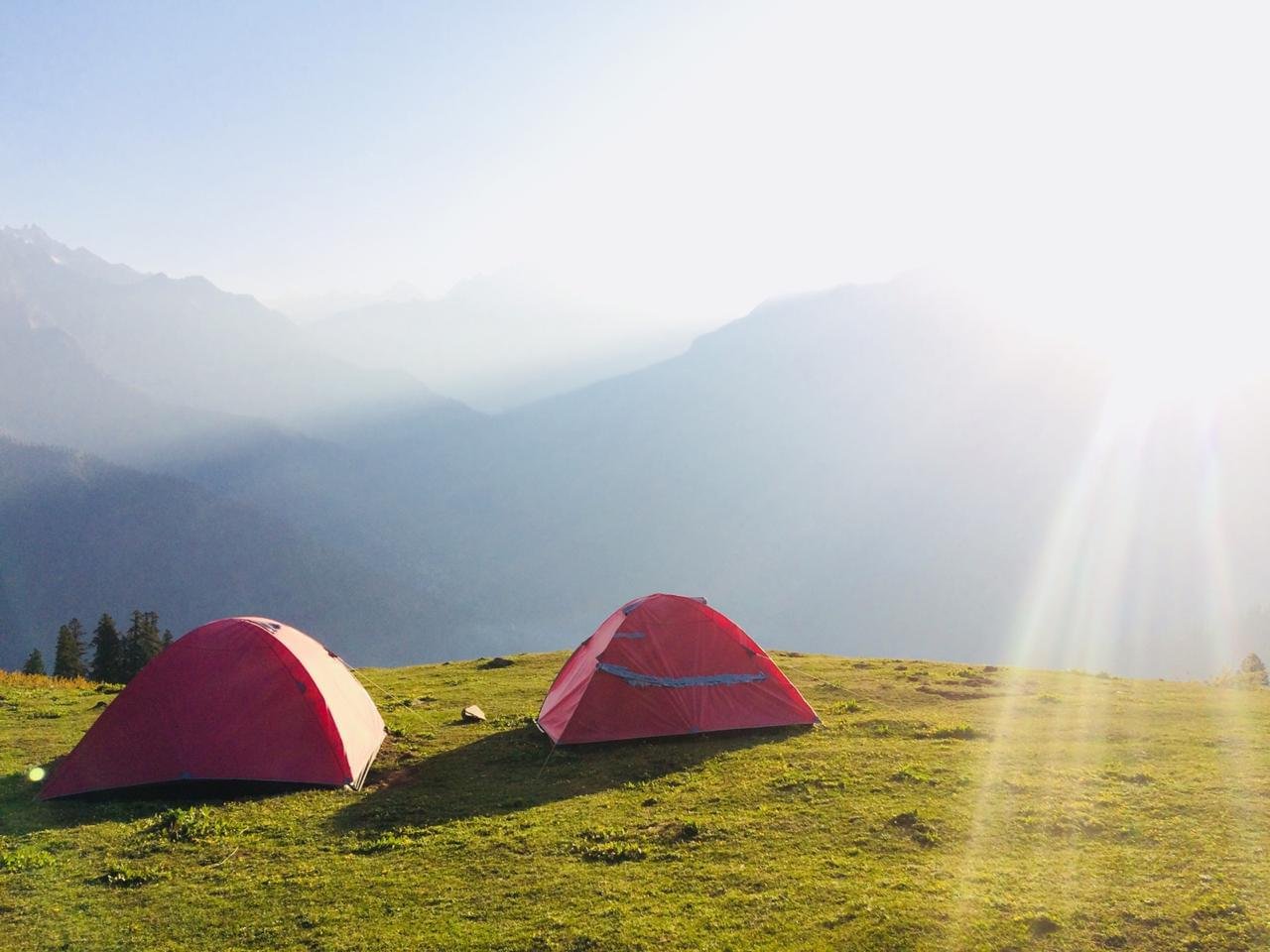
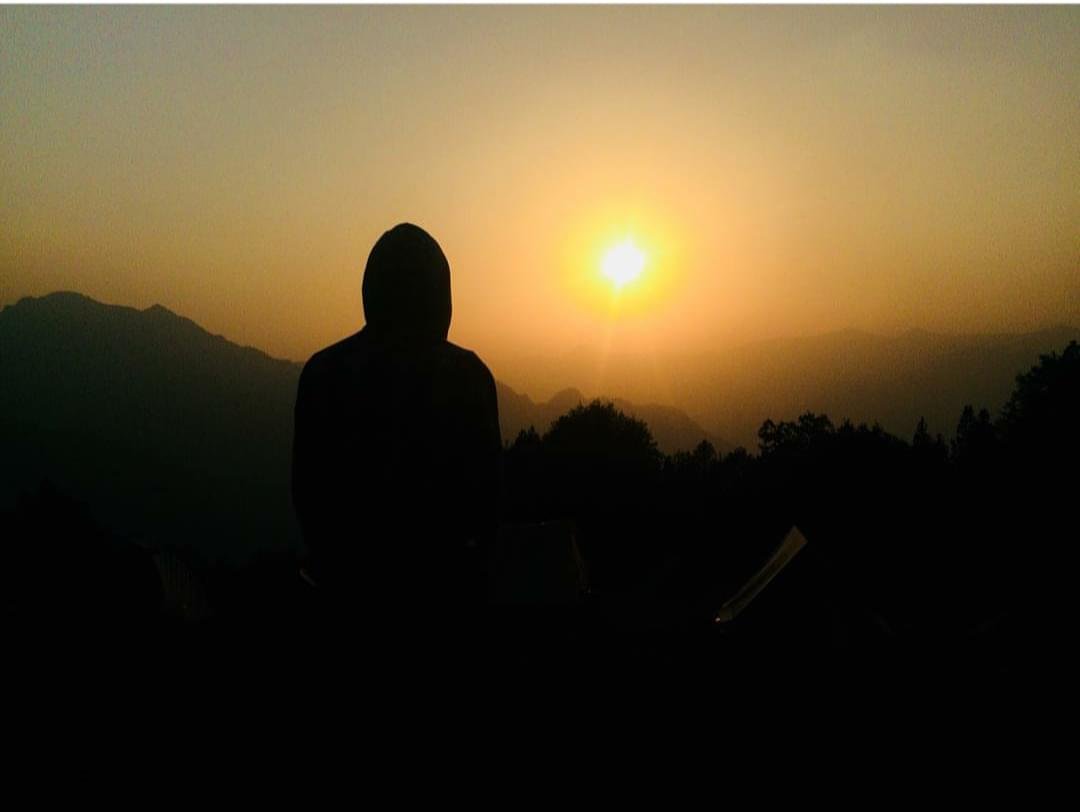
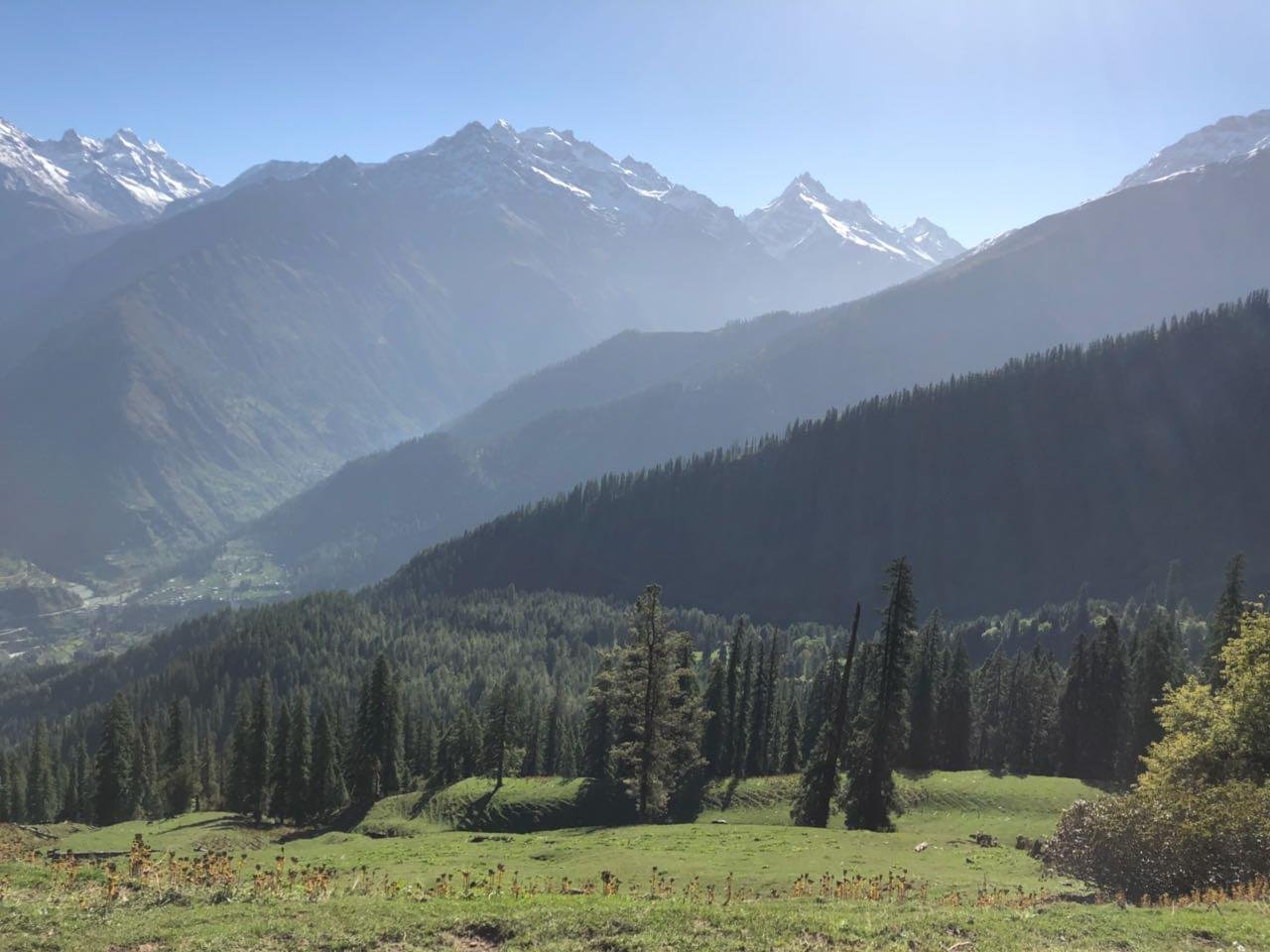
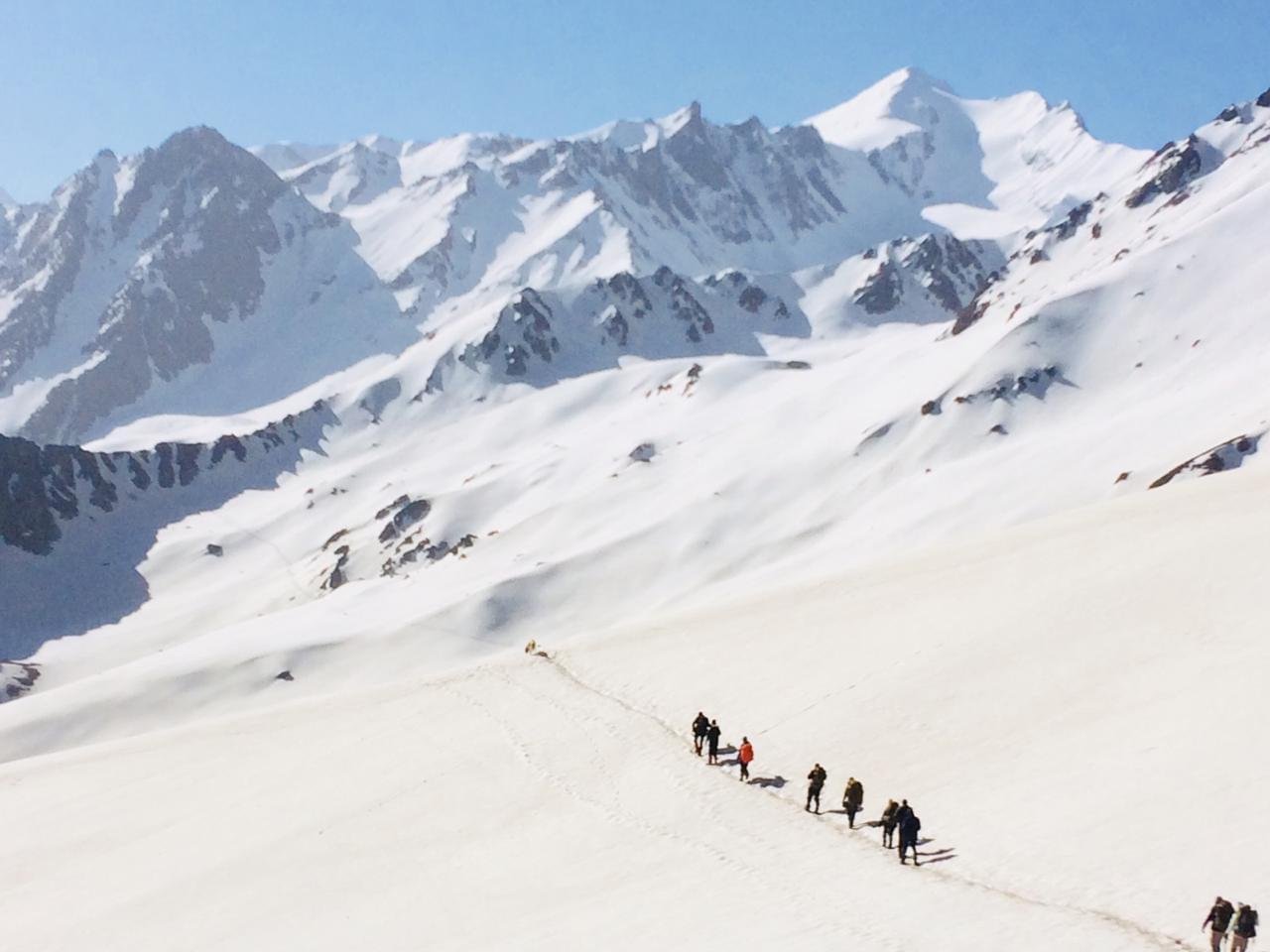
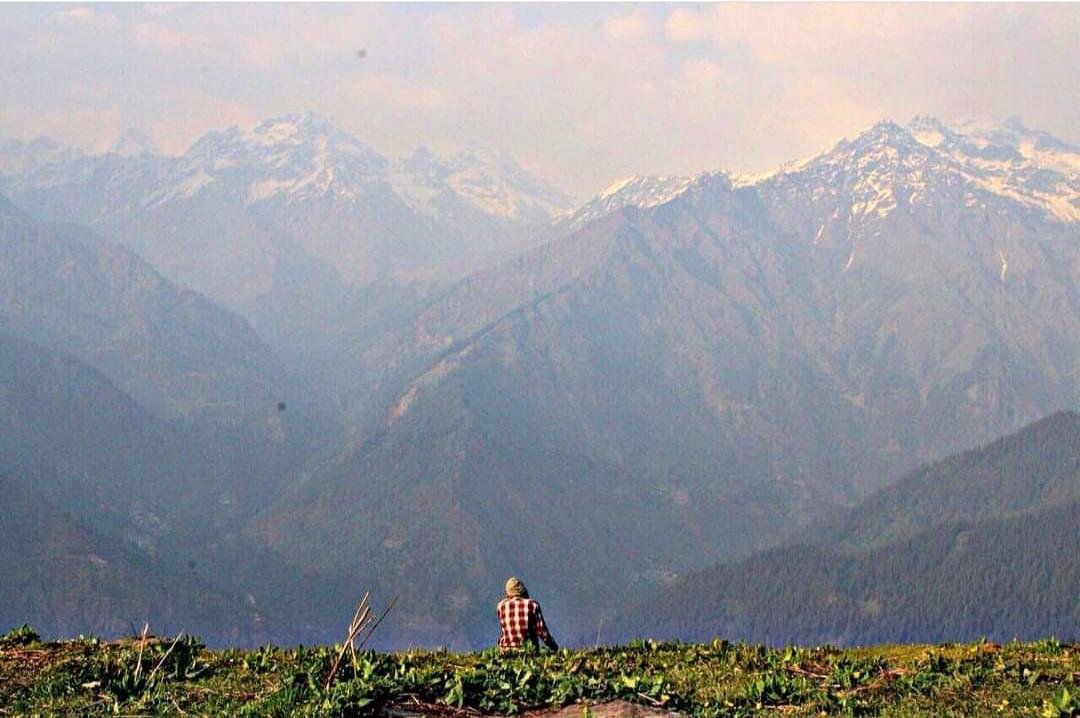
Book Your Next Adventure in
Just 4 Steps!
Traveling should be exciting, not complicated! At Safar Suhana, we make booking your trip quick, simple, and stress-free. Just follow these four easy steps and get ready for an unforgettable experience!
Pick Your Destination
Our experienced team ensures your trip is stress-free, safe, and well-planned.
Customize Your Trip
Our experienced team ensures your trip is stress-free, safe, and well-planned.
Book & Confirm
Our experienced team ensures your trip is stress-free, safe, and well-planned.
Travel & Enjoy
Our experienced team ensures your trip is stress-free, safe, and well-planned.
We’re excited to connect and collaborate with you on innovative strategies that will shape the future of your brand.
Let’s Talk
+91 7018034086
info@safarsuhana.com
H-107, First Floor, Sec -63, Noida, U.P. - 201301
Welcome to Safar Suhana, where every journey is crafted with care, purpose, and a deep respect for our planet.
- Newsletter